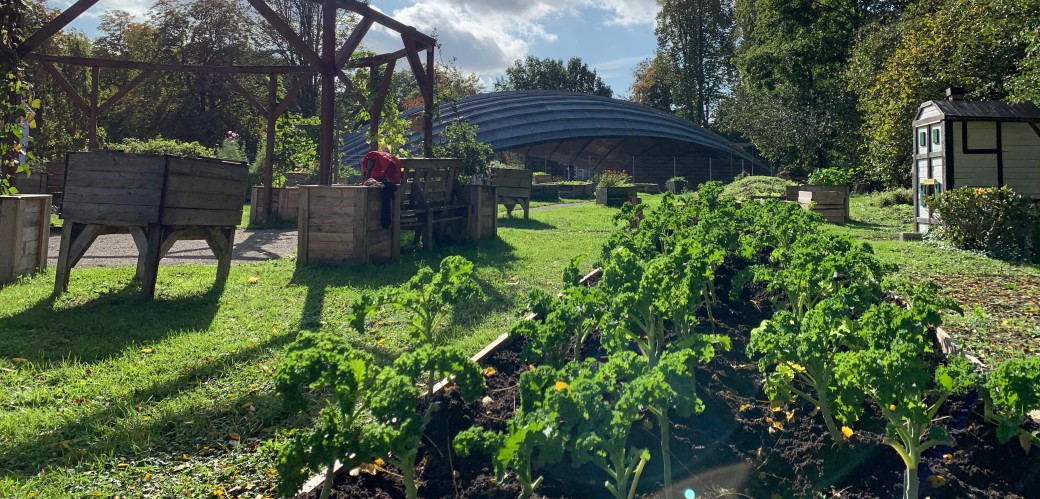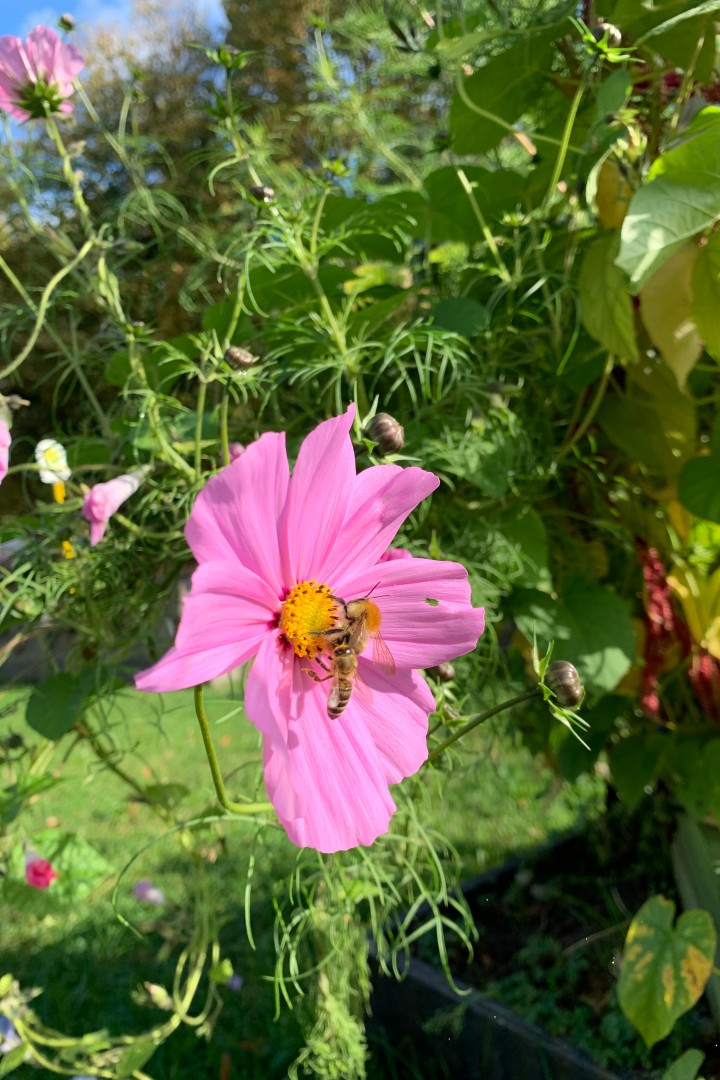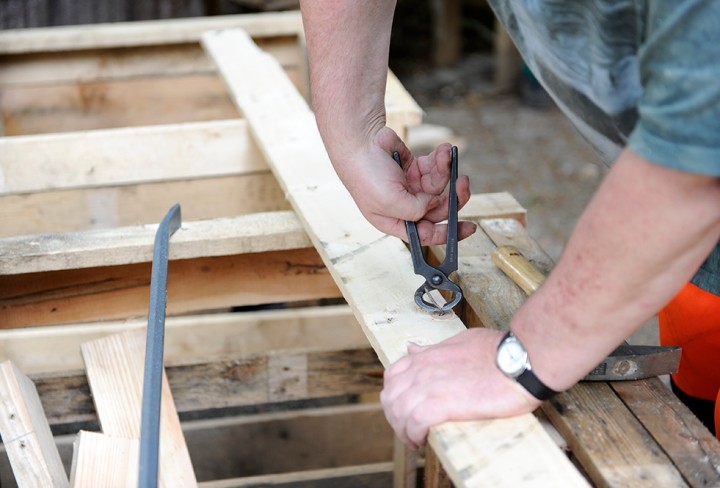

Since 2016 the project “EssKultur” (Eating Habits) has been developed on an unused brownfield site at the LVR-Industriemuseum industrial-archaeological park in the Klosterhardt district of Oberhausen. Being linked to the idea of the Oberhausen Agenda 21 Project “Essbare Stadt” (Town Fit to Eat) and one of its anchor points, it promotes biological diversity and social cohesion.

A kitchen garden with raised beds, a small alley of fruit trees, seating and play elements made mainly from recycled material has been created on an area of 600 square metres. Horticultural and biological diversity as well as seasonal and regionally oriented cultivation are of particular importance.
Therefore the garden guests can not only enjoy the plants which are in season such as daffodils and hyacinths in spring and sunflowers and Cosmias in the summer but also the numerous edible crops and herbs which demonstrate what is needed to eat healthily. These increase the appreciation for regional foods. Radishes, kohlrabi, green salad, chives, parsley and much more grow and flourish in the garden beds.
That is also good for the honey bees which were settled in the ironworks garden and produce the popular “St. Antony-Honig” (Honey).
The project was made possible as a result of a joint initiative between the LVR-Industriemuseum and the RUHRWERKSTATT – Kultur-Arbeit im Revier e.V., a charitable provider of social services and cultural events in Oberhausen. As part of a measure sponsored by the Jobcentre in Oberhausen, long-term unemployed persons are continually being trained to care for the garden. Whether weeding or harvesting:
At “EssKultur” the motto for everyone is: “You are welcome to enter” and “It is allowed to pick”.

The project has received an award as an official project of the “UN Decade of Biological Diversity” within a special competition “Soziale Natur – Natur für alle” (Social Nature and Nature for Everyone). The award is given to exemplary projects which through their activities draw attention to the opportunities which nature, through its biological diversity, offers for social cohesion.
It will set a clear signal for commitment at the interface between nature and social issues in Germany. These activities impressed the UN Decade specialist jury. “EssKultur an der St. Antony-Hütte” has received a “Vielfalt-Baum”, (Diversity Tree) symbolising diversity in nature in addition to the official certificate and an award plaque. As from immediately the project will be presented in the website of the UN Decade in Germany under www.undekade-biologischevielfalt.de .